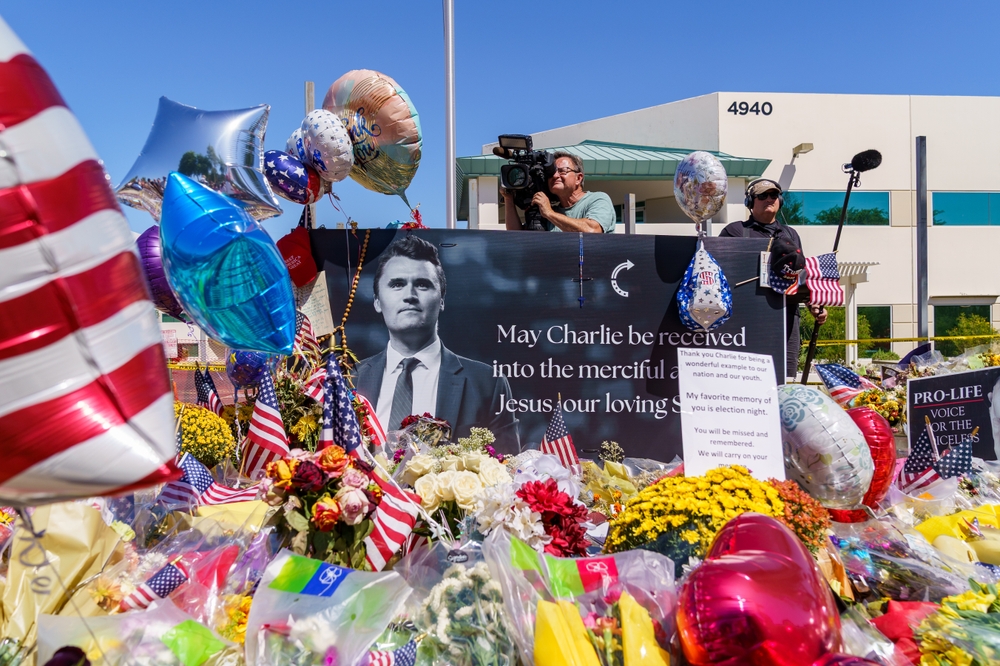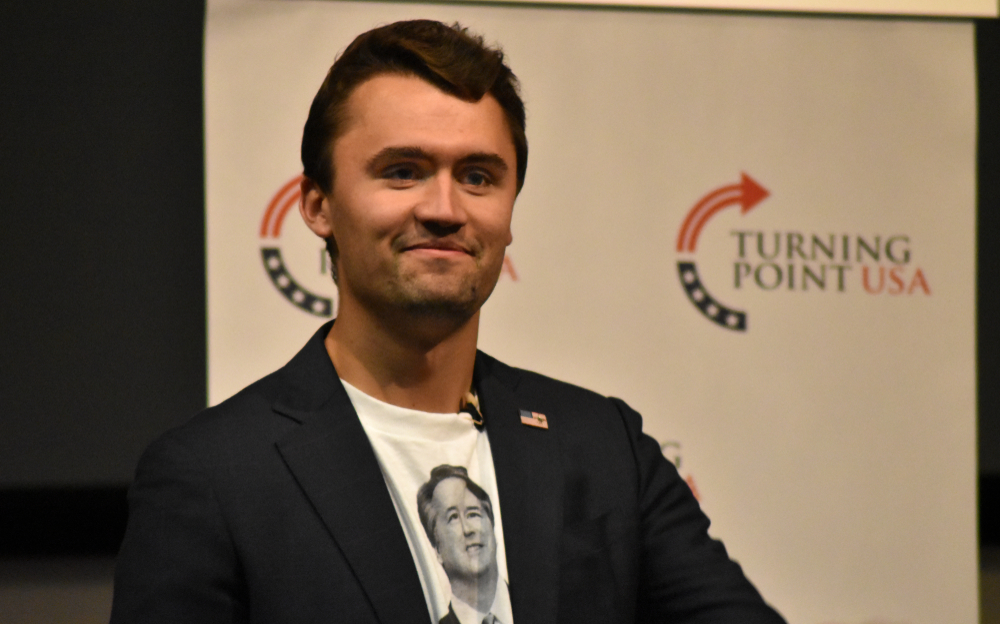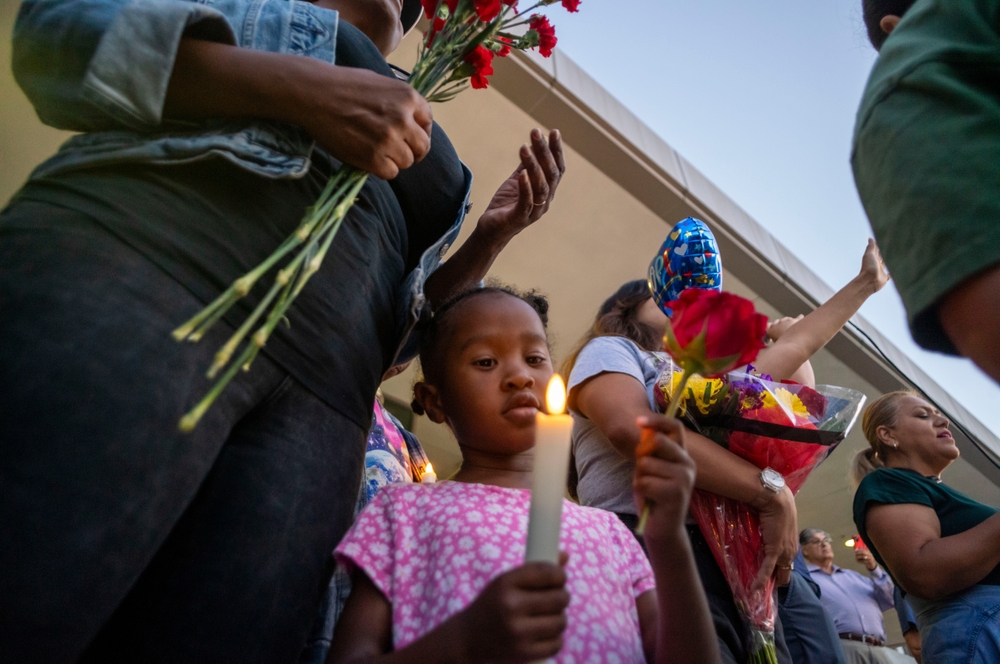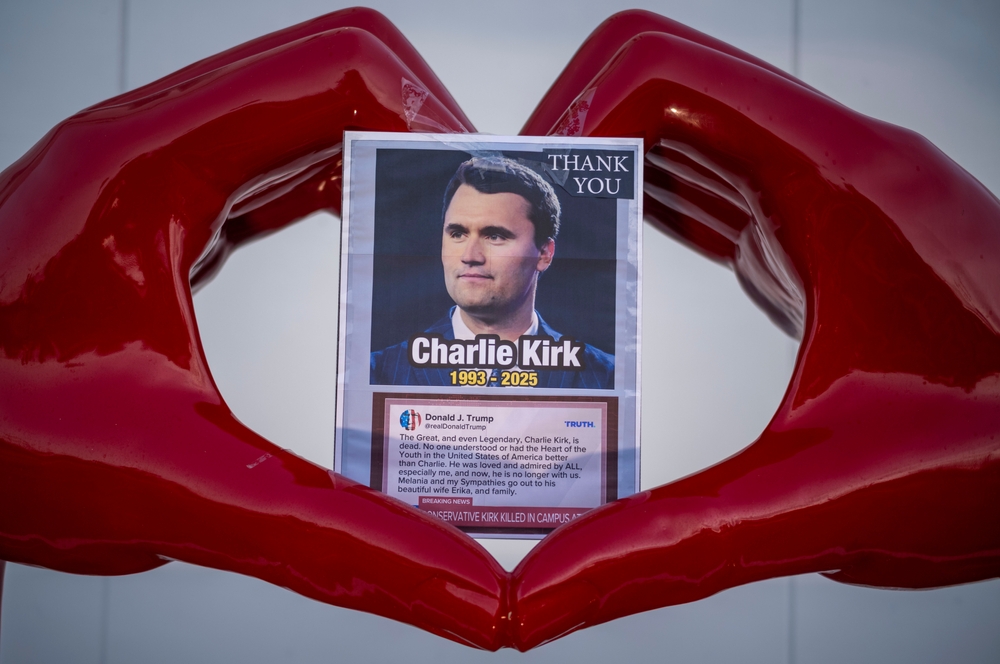Erika Kirk Says She Forgives Charlie Kirk’s Alleged Killer, Citing Faith and Legacy

Grief has a way of stripping away the comfortable illusions we carry through life. It interrupts our routines, shatters our sense of safety, and leaves us standing in the silence of loss with only questions for company. At Charlie Kirk’s memorial service, Erika Kirk stood in that silence, faced the abyss of her husband’s murder, and chose to speak not of hate, but of forgiveness. Her words were not rehearsed lines or political slogans—they were an outpouring from the rawest corner of her heart, delivered in a moment when most would be consumed by rage.
Her words were raw and vulnerable, revealing the depth of her pain and the clarity of her conviction. Before thousands of mourners, she declared forgiveness for the man accused of taking her husband’s life. It was not denial, not avoidance of the wound, but a choice to resist hate at its most seductive moment. Forgiveness became her act of rebellion, her weapon not of destruction but of peace, cutting through the cycles of violence with something few expected to hear in such a place.
Minutes later, Donald Trump addressed the same crowd with warmth and praise for Charlie Kirk’s legacy. He honored the man, acknowledging the role Charlie had played in shaping conversations and communities. But then, in striking contrast, he admitted that he does not forgive his opponents and openly declared his hatred for them. This juxtaposition—Erika’s grace against Trump’s animosity—posed a challenge to all listening. Which path do we follow in our own lives: the instinctive pull of anger, or the vulnerable strength of forgiveness?

Erika’s Act of Forgiveness
When Erika Kirk took the microphone, her grief was evident in every word. She described the unbearable shock of seeing her husband’s wound, the horror of realizing life had been stolen in an instant, and the hollowing silence that followed. Her pain was unfiltered, spoken with the honesty of someone unwilling to sanitize the depth of her loss. And yet, within that anguish, she declared forgiveness, stunning the crowd with words they did not expect to hear.
“I forgive him because it was what Christ did and it is what Charlie would do,” she declared. Forgiveness was not a dismissal of justice or a softening of the crime—it was her way of reclaiming her power in a moment where violence had stripped everything away. She refused to be defined by vengeance, even though vengeance would have felt justified. In this act, she placed her pain within a larger frame, one in which love was more powerful than hate.
Her words revealed a strength that looked nothing like retaliation. In a world that equates power with striking back, Erika showed that real strength can also mean letting go. Forgiveness did not erase her pain, but it kept her pain from becoming the architect of her future. That choice, made in her darkest hour, challenged everyone listening to imagine forgiveness in their own lives—not as a simple moral ideal, but as a survival strategy that preserved her humanity.
The impact of her words went beyond the memorial itself. By refusing to allow hatred to harden her heart, Erika gave others permission to imagine what life could look like if they, too, let go of the chains of resentment. Her voice became not only a personal declaration but a communal invitation. Forgiveness, in her telling, was not about excusing evil—it was about refusing to be destroyed by it.

Trump’s Contrasting Voice
Donald Trump’s remarks began in a tone of respect and honor. He praised Charlie Kirk’s spirit, his influence, and the legacy he left behind. He spoke of the friendship they shared and the contributions Charlie made. But then, with unusual candor, he revealed how different his own approach to life and conflict truly is. His admission landed like a jolt, redirecting the mood of the room.
“I hate my opponent … and I don’t want the best for them,” Trump said. In admitting this, he positioned himself in stark opposition not only to Erika’s words, but also to Charlie’s known posture of wanting the best even for those who disagreed with him. His bluntness was disarming because it voiced a reality many people privately feel but seldom speak aloud. It showed how deeply anger and hostility can embed themselves into daily life, especially in political contexts.
Anger and resentment often feel more honest than forgiveness. In politics especially, animosity is treated as fuel, a weapon to survive in an adversarial world. For some, Trump’s admission felt authentic and tough, a sign of unwillingness to compromise. For others, it exposed the corrosion of empathy and the widening gulf between opponents. Either way, it forced listeners to confront a truth: hatred may feel natural, but it shapes the soul as much as it shapes society.
Placed beside Erika’s words, the contrast sharpened. Forgiveness requires vulnerability, while hatred masquerades as strength but erodes from within. The memorial became more than remembrance—it became a mirror, reflecting back the two choices available to every human being. We can lean into hate, or we can risk the courage of love. Each choice shapes not only the world around us, but also the inner architecture of who we are becoming.

Why Forgiveness Matters
Forgiveness is often misunderstood as weakness, yet research and lived experience suggest the opposite. Studies in psychology show that forgiveness can lower stress, reduce depression, and even improve physical health. To forgive is to lighten a burden, to release the constant weight of resentment that can poison both body and mind. Erika’s act demonstrated that forgiveness is not just spiritual—it is deeply practical, touching both heart and health.
On the other hand, chronic anger has measurable costs. Hostility is linked to cardiovascular disease, weakened immune systems, and shortened lifespans. It may feel like strength in the moment, but in reality, it chips away at well-being until little is left but exhaustion. Trump’s words reflect a culture where anger has become normal, but normal does not mean healthy. A society that thrives on resentment risks breaking itself from within.
Erika’s choice did not erase the seriousness of what happened to her. Forgiveness did not negate the need for justice or accountability. But it did show that healing and justice can exist together. It suggested that the human heart can choose to pursue peace without compromising truth. Her response offered a vision of how to live beyond pain without denying it.
When forgiveness takes root, it ripples outward. Families change. Communities soften. Cycles of retaliation are disrupted. Erika’s act of forgiveness, born in unimaginable pain, became a seed of possibility that others might choose to water in their own lives. It carried a message that extended far beyond the church walls: forgiveness is not an escape from reality—it is a radical way of engaging reality with courage.
Parallels in the World Around Us
The tension between forgiveness and hate is not confined to public tragedies. Restorative justice programs provide evidence of what forgiveness can accomplish. In these programs, victims meet offenders in carefully guided encounters. The result is often a surprising sense of closure, reduced anger, and even empathy. Forgiveness in this context does not replace justice—it deepens it, transforming accountability into a pathway toward peace.
Closer to home, each of us faces smaller but still painful choices. A family member betrays us, a friend disappoints us, or a colleague mistreats us. We carry these hurts quietly, and the temptation to let them harden into grudges is strong. Erika’s story magnifies the reality that forgiveness is possible even when the wound is deep. If she can choose it in tragedy, perhaps we can attempt it in smaller ways, practicing forgiveness in daily life until it becomes a rhythm.
But forgiveness is not the same as tolerance of abuse. Healthy forgiveness draws boundaries while still releasing bitterness. Erika’s example shows us that we can forgive while demanding justice, and we can love without excusing harm. It is a nuanced path—one that balances compassion with wisdom, ensuring that love is not reduced to enabling harm but elevated to a force of healing.
These lessons are not only moral but practical. Forgiveness offers freedom. It clears away the clutter of resentment, giving us room to live lighter and more fully. It transforms relationships, reshapes communities, and—when practiced collectively—might even change how societies heal from wounds. Erika’s words remind us that forgiveness is not just a lofty principle but a tool for survival, hope, and renewal.
Loading...

